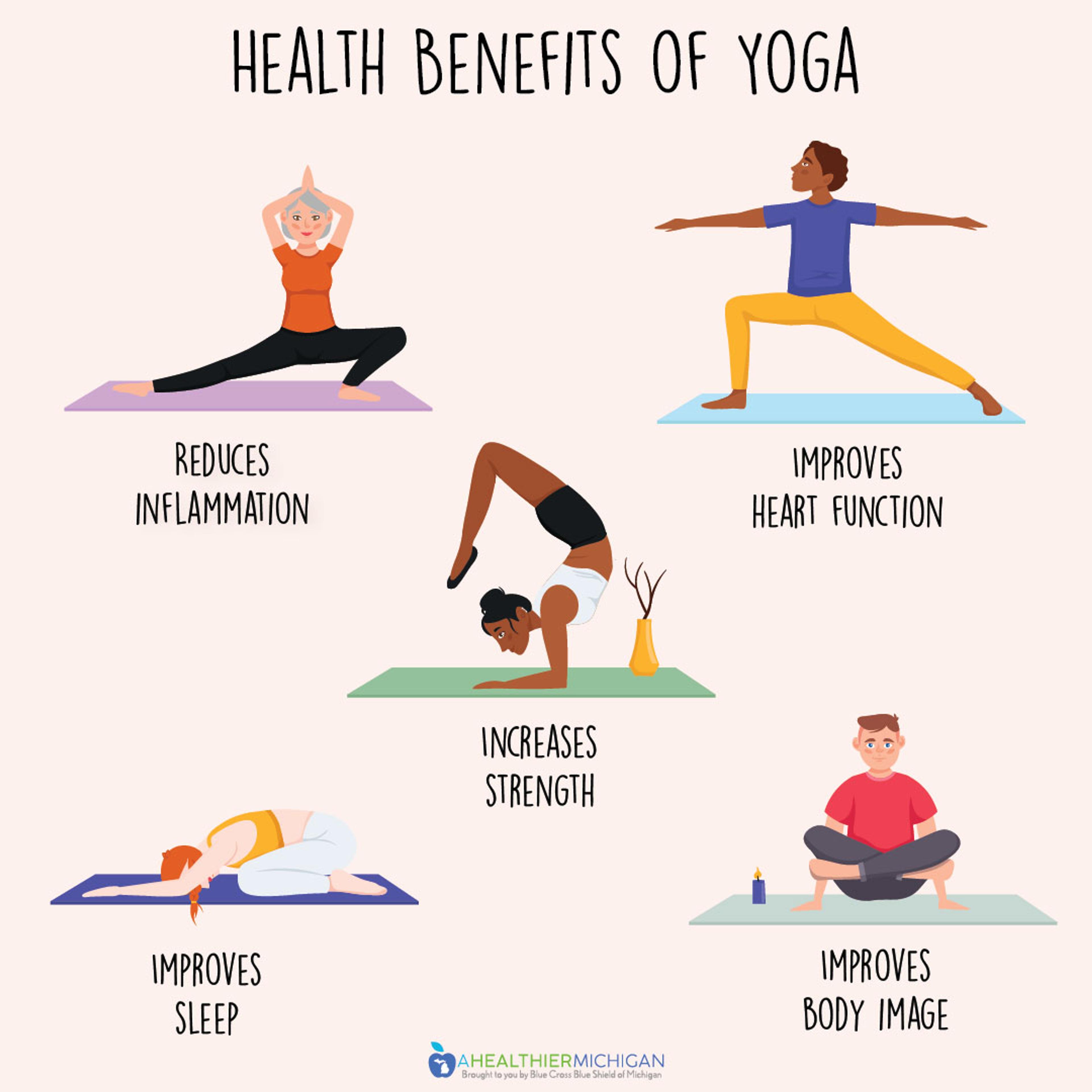Health Benefits of Yoga
3 min read

Downward dog. Child’s pose. Yoga mats of all colors and sizes. The practice of yoga as a stretching exercise or as a meditative regimen is so incorporated into our lifestyle that its classic poses and equipment are now commonly known. Each year, more people embrace the practice. They may do it to feel more flexible. Or to get tuned in to mindfulness. What might surprise these new yoga fans is the array of health benefits the practice provides.
Increasing popularity for an ancient practice. Participation in yoga classes or those doing yoga at home has been on the upswing in the last decade. The latest statistics show more than 34 million people in the United States say they have done yoga at least once in the last year, with many of those incorporating it into their regular wellness routine.
While more people are discovering yoga, it’s certainly not a new practice. It traces its roots back nearly 5,000 years to northern India. It has ties to religion, and to both sacred and secular meditation practices. There are many different types of yoga, yet they all have a common denominator: They guide a person to make the mental connection between their breath and their physical body.
Health benefits
Research continues to be done on how regularly practicing yoga can benefit our health, but what’s been shown so far is that the list of benefits is long. The positive effects encompass both mental and physical health, touching on everything from better body image to more flexibility and improved sleep. Some of the health benefits might surprise you. They include:

Reduces inflammation: Inflammation is seen as a factor in several chronic health problems, including diabetes and heart disease. Practicing yoga regularly can reduce the biochemical markers associated with inflammation, research has shown. In this way, it can work to prevent these chronic diseases from developing.
Increases strength: Higher levels of flexibility are expected with a practice like yoga that is based on stretching and holding poses. But studies have shown it can also build strength. One study in particular showed increases in leg strength and a stronger grip attributed to regular yoga.
Improves sleep: Not surprisingly, restful forms of yoga that are breath-focused while a person is sitting or laying down have been shown to improve the quality of sleep for older adults. One study of adults who did yoga exercises daily on their own, and twice a week with a group, found they reported more restful sleep with less night-waking.
Improves body image: Giving yourself space and time to listen to your breath and get in touch with the physical movements of your body is what yoga is all about. Research has shown that people who practice yoga tend to be more comfortable with their bodies. Studies involving young adults have shown increased satisfaction with body image among those who practice yoga for more than 30 minutes a week.
Improves heart function: The rhythmic and meditative breathing that’s part of different yoga practices has been found to have a positive effect on how the heart works. Studies have shown this kind of steady breathing can improve a person’s heart rate and arterial pressure.
With all these benefits just waiting, it might be time to give yoga a try.
Photo credit: Getty Images









